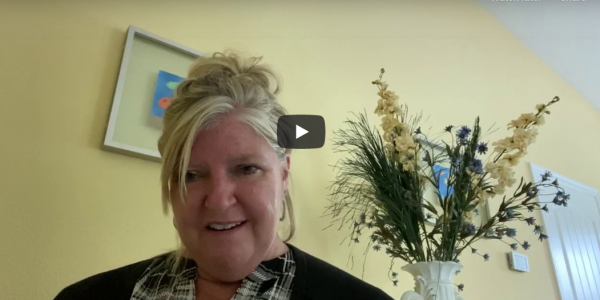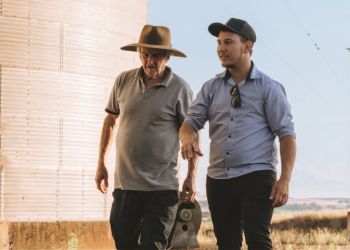Each year, National Public Health Week (NPHW) serves to recognize the contributions of public health and center issues that are important to improving our nation’s health. This NPHW, we’ll be highlighting some of the ways that local health departments (LHDs) are standing on the front-lines of COVID-19 response to protect public health at the community level. Despite being crippled by years of funding and staffing cuts, LHDs are engaged in activities such as fielding phone calls from community members, developing multilingual COVID-19 education materials, conducting contact tracing, establishing drive-thru testing sites, delivering groceries and thermometers, and a great deal more. Read on to learn more, and be sure to scroll to the bottom for a message from NACCHO’s CEO, Lori Tremmel Freeman.
Testing, Tracing, and Tracking to Prevent the Spread
Local health departments play a critical role in testing, tracing, and tracking the spread of COVID-19. From ![]() conducting surveillance and making data publicly available to administering tests and following up with contact tracing, local public health professionals are well-positioned to help monitor and mitigate community transmission of the virus.
conducting surveillance and making data publicly available to administering tests and following up with contact tracing, local public health professionals are well-positioned to help monitor and mitigate community transmission of the virus.
In North Carolina, New Hanover County Health Department is using ‘mobile strike teams’ to work with the uninsured and high-risk populations. People experiencing symptoms can report them to a call center and, if deemed necessary, a mobile unit with two public health nurses is deployed to administer a rapid-response flu test. While waiting for the results, the nurses educate clients about proper steps for self-isolation – an important step to reduce the spread of the disease. If the rapid flu test is negative, the mobile strike team collects samples to be sent to the state’s public health laboratory. Hamilton County Health Department (TN) opened a drive-thru testing site through which the health department receives referrals, contacts patients, and then schedules an appointment time for specimens to be collected without patients needing to leave their car. Allegheny County Health Department (PA) is testing about 500 people each day, as well as practicing “smart testing,” which prioritizes tests for people who meet specific criteria for COVID-19.
To help monitor cases, agencies such as the New York City Department of Health and Mental Hygiene and the Detroit Health Department created heat maps (see maps of New York City and Detroit) that break positive cases down by indicators such as zip code, age, and gender. These data-sharing efforts are critical to helping identify hotspots and keeping communities informed about their geographic risk. Additionally, agencies across the country – including St. Joseph County Health Department (IN), Franklin County Health Department (OH), Austin Public Health (TX), and Baltimore City Health Department (MD) – are conducting contact tracing to identify and notify anyone who’s been in contact with a person who is showing COVID-19 symptoms or has tested positive.
Some LHDs are even leading efforts to establish temporary health centers that promote isolation of people with suspected or confirmed COVID-19 cases. Brown County Public Health (WI) is coordinating with emergency workers to set up voluntary isolation centers to ease strain on hospitals and ensure there are enough beds for people who need them while simultaneously trying to prevent the spread of the virus. In Colorado, El Paso County Public Health is also involved in an effort to set up a referral-based isolation center to support people experiencing homelessness.
Supporting Mental Health and Well-Being
COVID-19 is causing heightened levels of stress as a result of social distancing and quarantine, separation from loved ones, general fear about the risks and impacts of the disease, and rapidly changing information and/or exposure to misinformation. Despite experiencing their own fears, anxieties and emotional fatigue, public health professionals at LHDs are supporting mental wellness a variety of ways.
Some health departments are using hotlines to address questions from a concerned and uncertain public. In Michigan, St. Clair County Health Department coordinated with St. Clair County Community Mental Health to support development and staffing of a countywide hotline meant to provide support for people who are struggling with feelings of isolation and loneliness, or dealing with panic or anxiety over the possibility of getting sick, financial struggle, resource scarcity or caregiving. It also offers support to first responders, essential employees, medical professionals  who are working on the front lines of the situation. Tennessee’s Anderson County Health Department (TN) took a similar approach, setting up a hotline for people who think they may have COVID-19 symptoms to call and receive a consultation and talk about possible testing options in the area. By providing a direct line for community members to speak with health professionals, these efforts help calm fears and offer access to accurate, evidence-based information about COVID-19.
who are working on the front lines of the situation. Tennessee’s Anderson County Health Department (TN) took a similar approach, setting up a hotline for people who think they may have COVID-19 symptoms to call and receive a consultation and talk about possible testing options in the area. By providing a direct line for community members to speak with health professionals, these efforts help calm fears and offer access to accurate, evidence-based information about COVID-19.
Other health departments are leveraging the media to communicate with the public about mental health. In Illinois, Kendall County Department of Public Health distributed a press release to offer advice for those who may be struggling with their mental health during the state’s ongoing shelter-in-place order and concerns over the spread of the COVID-19 coronavirus. In Missouri, Springfield-Greene County Health Department teamed up with Burrell Behavioral Health to address mental health concerns in a virtual press conference, explaining that social distancing does not have to equal isolation and offering tips for managing anxiety. In Colorado, Douglas and Arapahoe counties joined forces with Tri-County Health Department officials, AllHealth Network, and the Aurora Mental Health Center to host mental health-focused virtual town hall.
Providing Health Education
During public health crises, including infectious disease outbreaks, accurate and accessible health information saves lives. Since LHDs exist and operate within![]() communities, they are often a trusted source of such information. Throughout the COVID-19 pandemic, LHDs have been engaged in efforts to ensure that health communication and outreach meets the needs of ALL people within their communities, particularly hard-to-reach and vulnerable populations.
communities, they are often a trusted source of such information. Throughout the COVID-19 pandemic, LHDs have been engaged in efforts to ensure that health communication and outreach meets the needs of ALL people within their communities, particularly hard-to-reach and vulnerable populations.
The New York City Department of Health and Mental Hygiene translated its COVID-19 Resources webpage into eight different languages to ensure that diverse language communities could access the latest information and updates. Similarly, the Detroit Health Department and Neighborhood Department is hosting weekly conference calls to share COVID-19 updates with non-English speaking residents. In Utah, Salt Lake County Health Department is part of an initiative that is using multidisciplinary outreach teams to provide services, including education on social distancing, to help protect unhoused populations.
Battling Stigma and Discrimination
According to the American Public Health Association and many experts in the field, racism is a public health issue and barrier to health equity. Throughout this pandemic, Asian people in the U.S. and across the globe have been scapegoated for the virus and its spread. This false narrative has resulted in Asian communities experiencing increased discrimination, racism, and xenophobia – and even physical and economic abuse – all of which are barriers  to health and well-being. Operating at the community level, LHDs can play a critical role in tackling stigma, racism, and discrimination as part of COVID-19 response.
to health and well-being. Operating at the community level, LHDs can play a critical role in tackling stigma, racism, and discrimination as part of COVID-19 response.
Public Health — Seattle & King County (WA) established an Anti-Stigma Resources webpage that includes an anti-stigma social media toolkit to promote fact-based information to combat the spread of misinformation that promotes racism and discrimination. Multnomah County Health Department (OR) has also set up a webpage that explains the harmful effects of discrimination and stigma, and provides a link for people to report discrimination to the Oregon Department of Justice.
The Road Ahead
These are unprecedented times for public health, and LHDs’ efforts on the front lines are making an incredible impact. As the nation continues responding to the COVID-19 pandemic, local public health professionals’ roles will be expanding in ways that rapidly unfold as their work, expertise, and actions are needed more than ever. Here at NACCHO, we are immensely grateful for and deeply committed to supporting our members through this unprecedented event. We’re proud to uplift and honor the dedication and sacrifice of LHDs and their staff, and encourage you to thank a local public health professional this week and beyond. The road ahead will be long, but we’re proud to walk it hand-in-hand with our nation’s local health departments.









